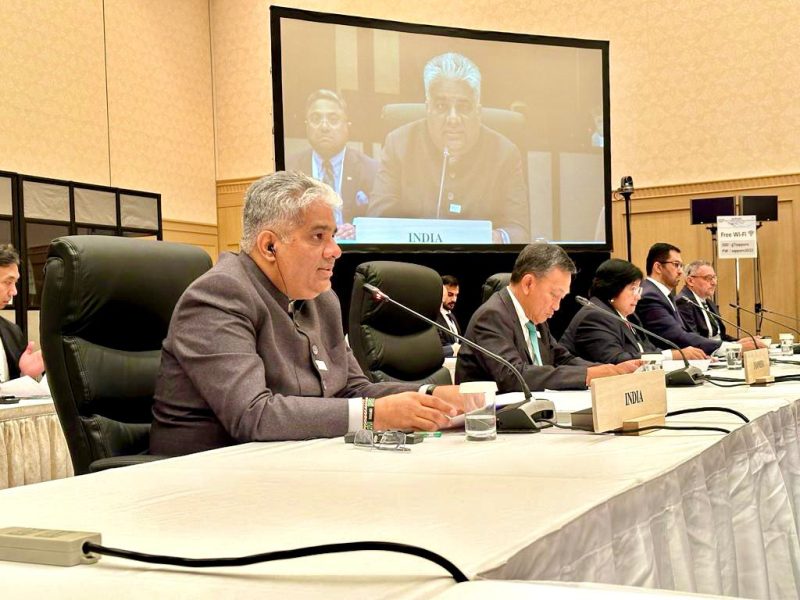
India stresses need to address climate change in tandem with environmental action

There is a need to holistically address climate change issues in tandem with environmental action, India said on Sunday (April 16) at the G7 Ministers Meeting on Climate, Energy and Environment in Japan’s Sapporo.
Addressing a plenary session of the G7 ministers meeting, Union Environment Minister Bhupender Yadav highlighted India’s emphasis on collective action to address environmental challenges, including efforts to encourage individual and community action through Mission LiFE.
He said changing individual and community behaviour can have a meaningful impact on mitigating the effects of environmental and climate crises.
Also read: Developed world must do more to achieve zero emission: India
Prime Minister Narendra Modi had last year launched Mission LiFE (lifestyle for environment) which calls for a global mass movement for inducing behavioural changes focused on “mindful and deliberate utilisation” of resources.
“Protecting and restoring ecosystems can help us reduce the extent of climate change and cope with its impacts. It is, therefore, important that we address issues related to climate change in tandem with environmental action, holistically. We do hope that this is at the core of deliberations of this meeting of the Climate, Energy and Environment Ministers of the G7 countries,” he said.
“Climate change, desertification, and biodiversity loss are deeply interlinked and pose existential challenges to humanity,” said Yadav.
Protecting and restoring ecosystems can help us reduce the extent of climate change and cope with its impacts.
It is important that we address issues related to climate change in tandem with environmental action, holistically.
— Bhupender Yadav (@byadavbjp) April 16, 2023
He said Rio conventions have made remarkable progress in addressing these challenges through a consensus-driven approach based on principles.
Also read: Net zero or carbon neutral? What matters is the intent to change
While India has taken strong domestic actions to combat climate change, set ambitious targets for itself, and steer international actions through various initiatives, Yadav emphasised the need for a country-driven approach based on the principles of equity and CBDR-RC (common but differentiated responsibilities and respective capabilities) to undertake decisive action.
Equity essentially means each country’s share of carbon dioxide emissions is equal to its share of the global population.
The CBDR-RC principle recognises that each country is responsible for addressing climate change, but developed countries should bear primary responsibilities as they account for most of the historical and current greenhouse gas emissions.
Also read: Major UN report on climate change gets global approval
Yadav expressed hope that the leadership of G7 nations would ensure an effective fight against the triple challenges of climate change, biodiversity loss, and pollution, conscious of the fact that “we have One Earth, we are One Family and have One Future”.
The G7 comprises Canada, France, Germany, Italy, Japan, the United States and the United Kingdom.
During the G7 summit in Germany last year, the participating countries established a shared objective of transitioning towards a predominantly decarbonised electricity supply by 2035.
Met with Japanese Environment Minister Mr Akihiro Nishimura on the sidelines of G7 in Sapporo.
We discussed biodiversity conservation, resource efficiency and creating a circular economy. We also spoke about how to further sustainable lifestyles to combat climate change. pic.twitter.com/KjIv7N1Cr9
— Bhupender Yadav (@byadavbjp) April 16, 2023
Delighted to have met students from India at Hokkaido University in Japan’s Sapporo.
Interacted with the young and inquisitive students on issues concerning India’s role on the global stage in combating climate change, promoting Blue Economy and conserving wildlife. pic.twitter.com/3BDBg5TgiH
— Bhupender Yadav (@byadavbjp) April 16, 2023
(With agency inputs)


